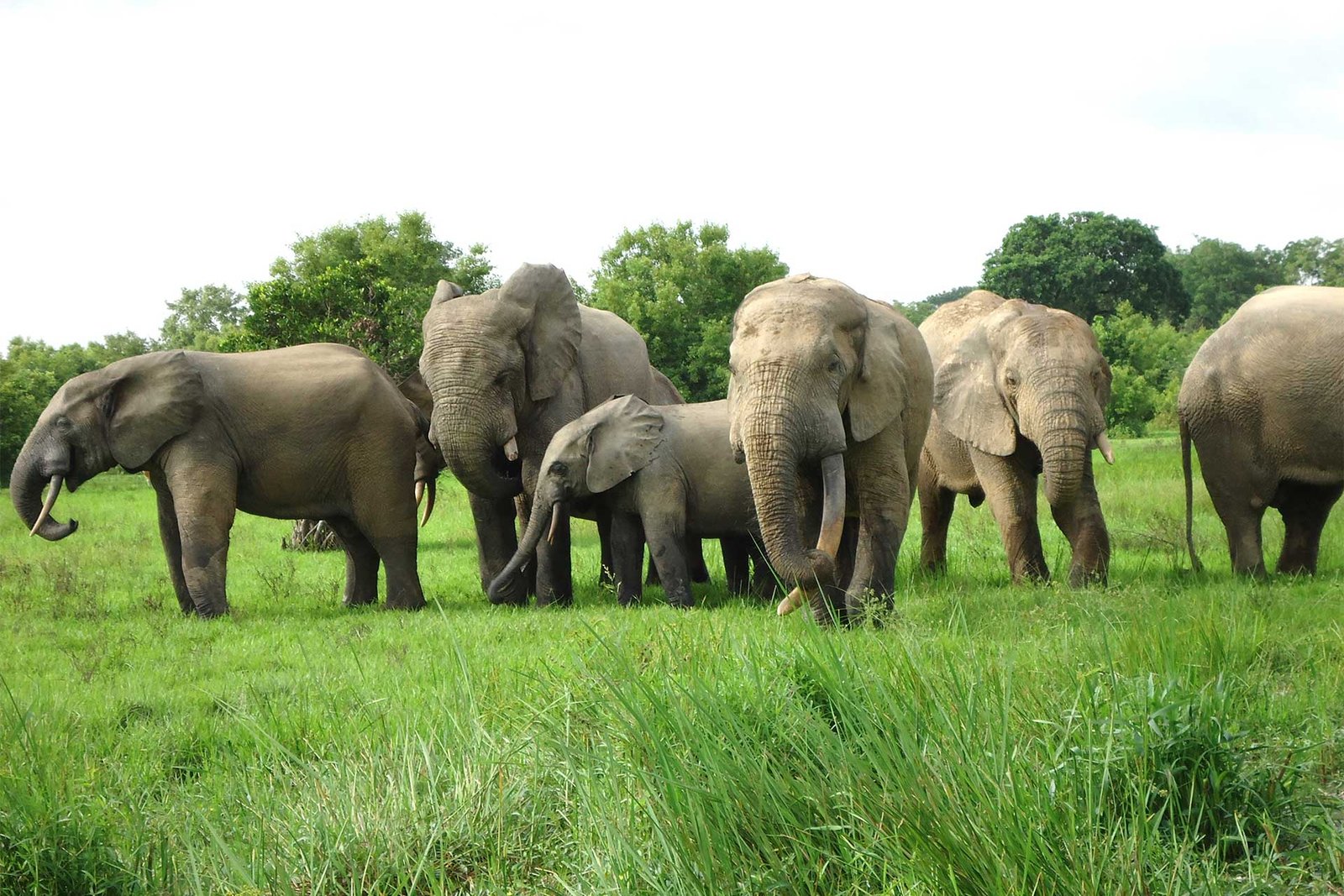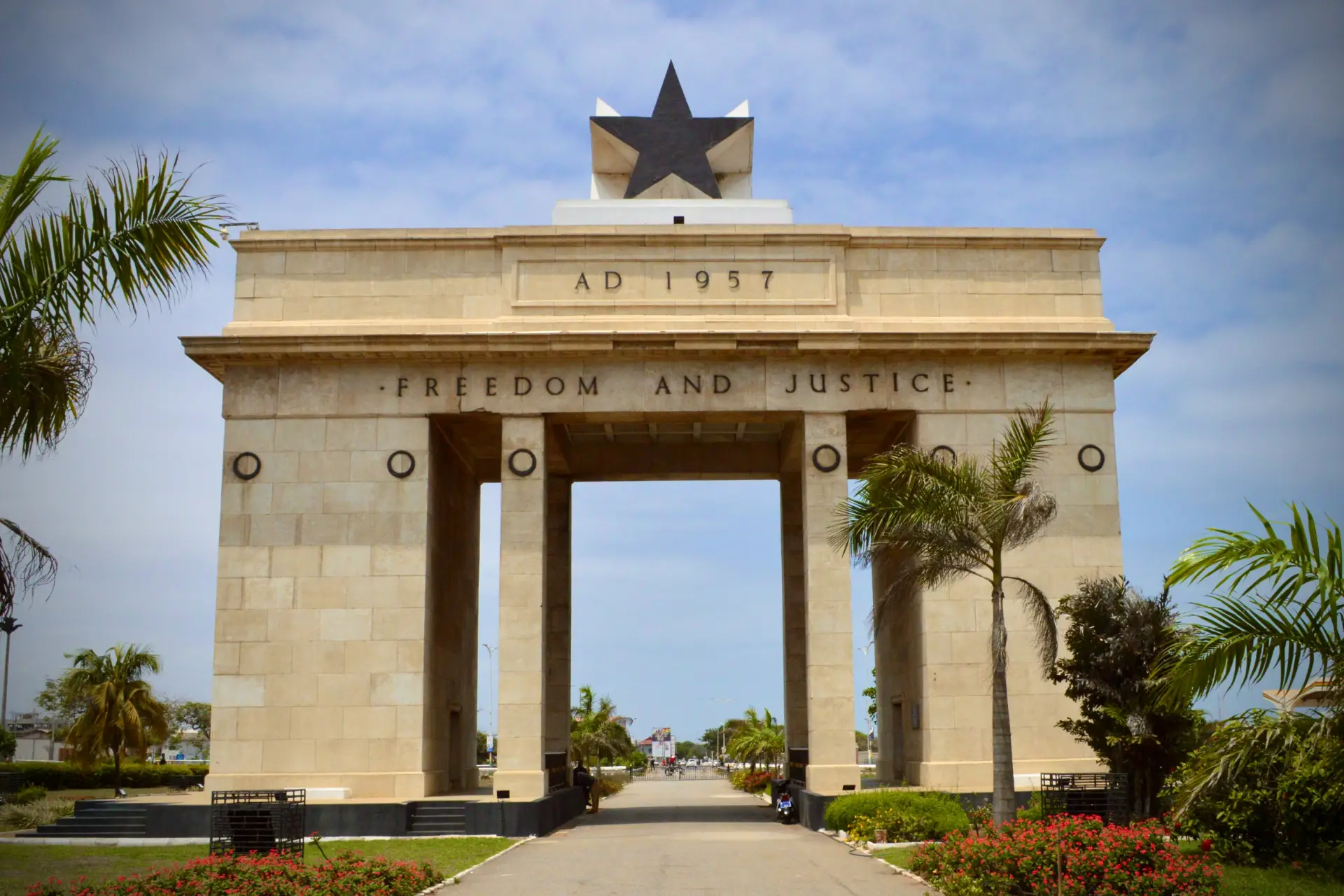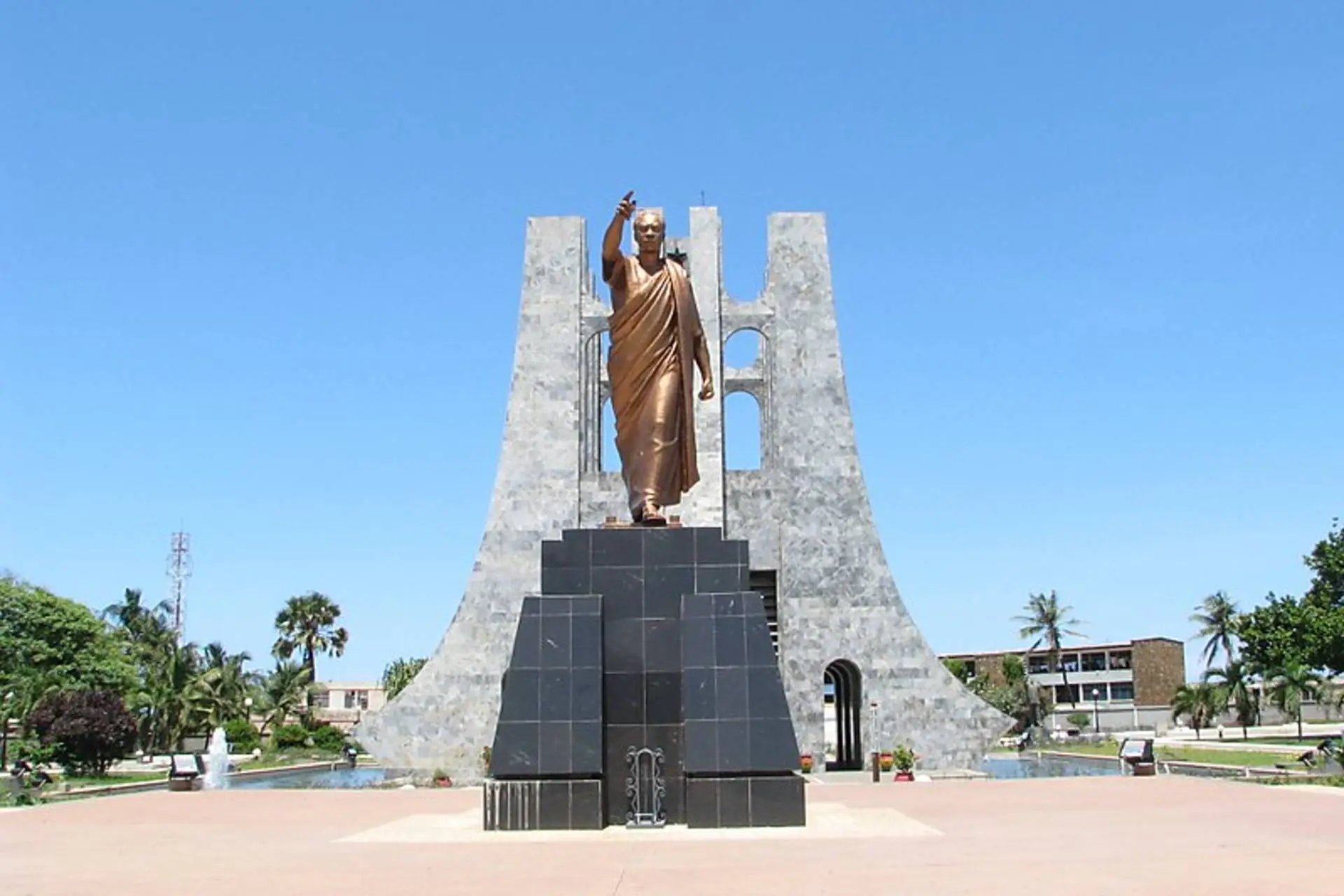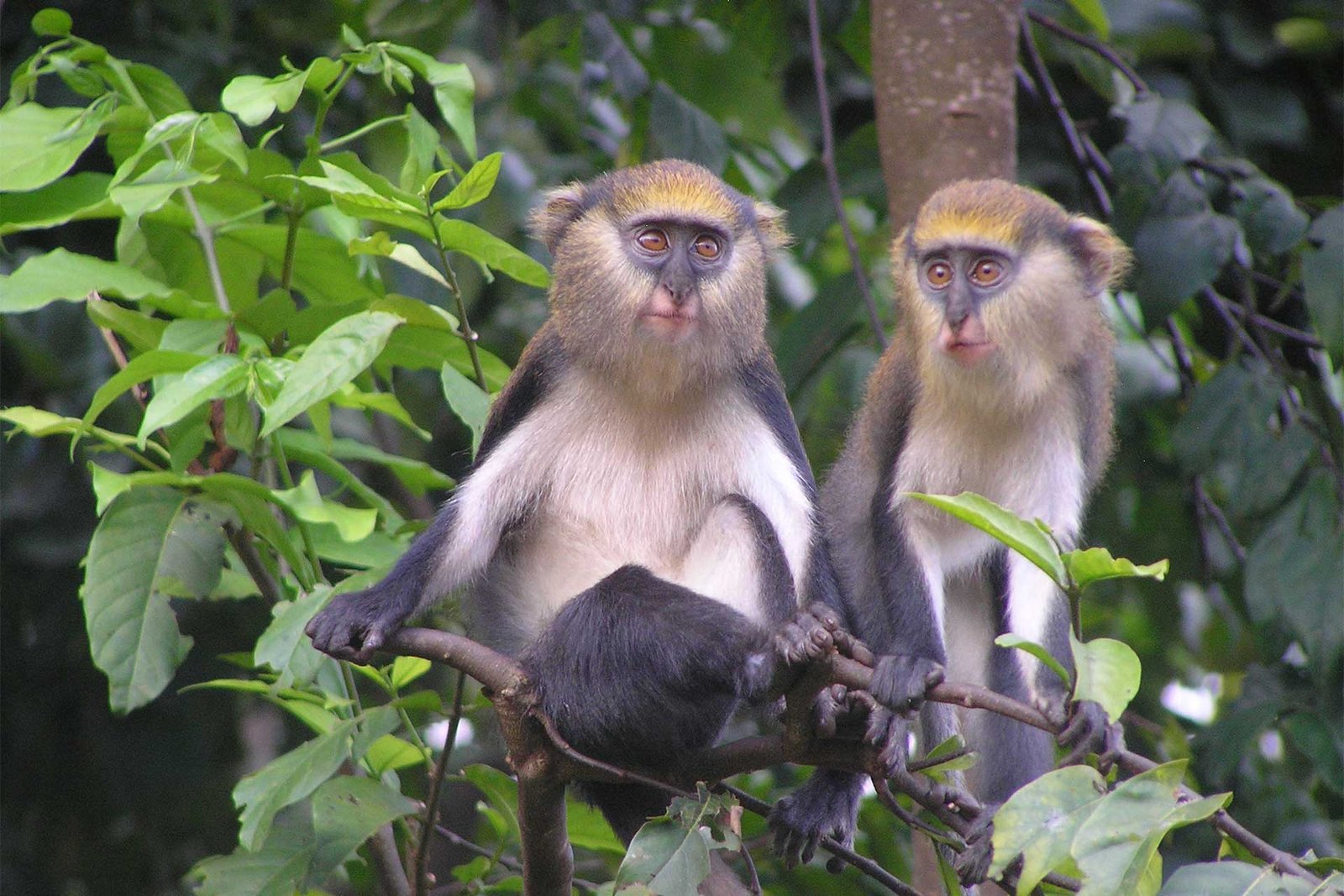Ghana Culture and Wildlife Adventure Tour
15 Days
The Best of Ghana: Explore Vibrant Culture, Historic Castles & Wildlife Safaris
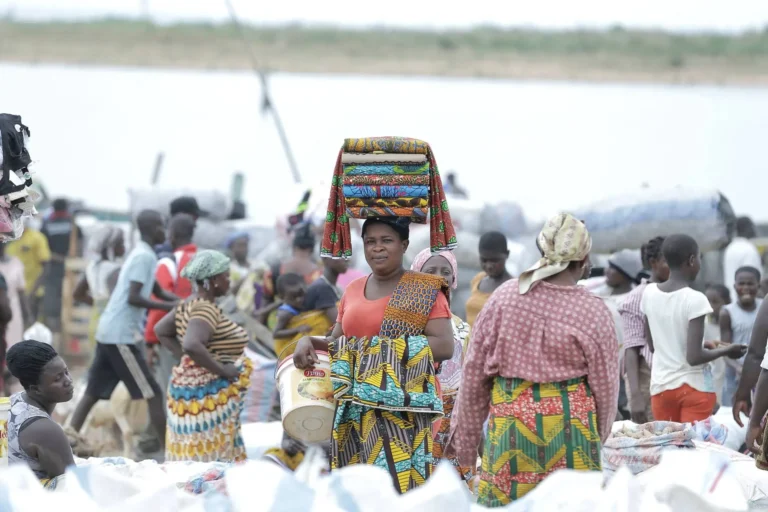
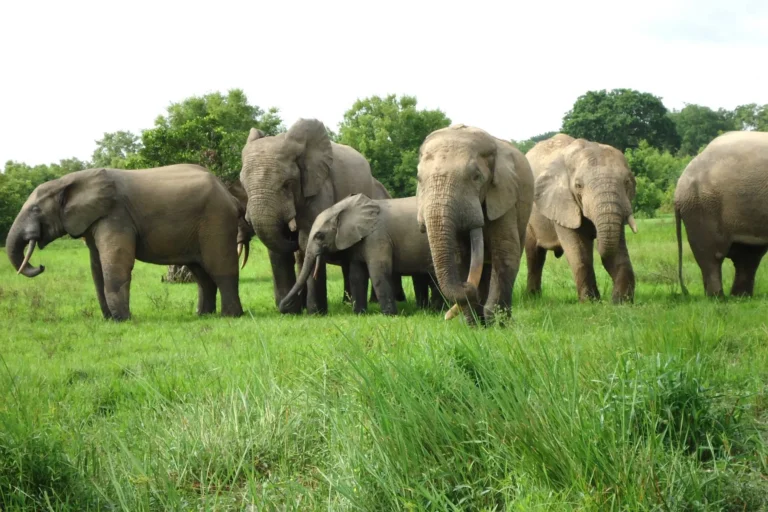
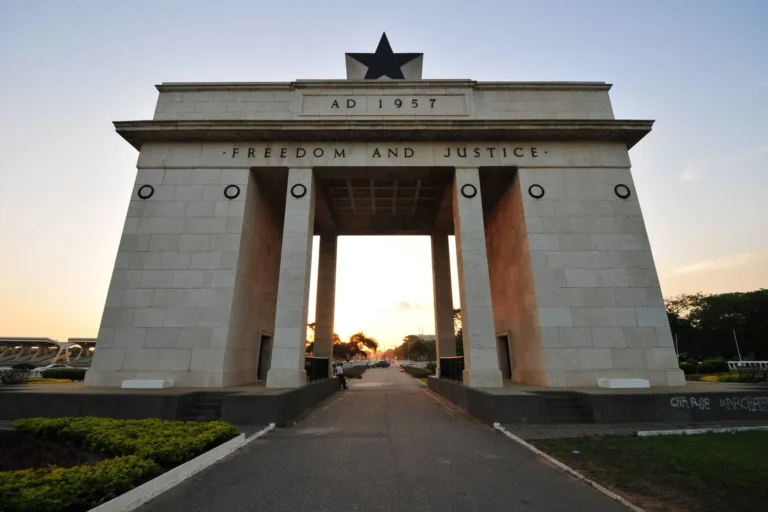
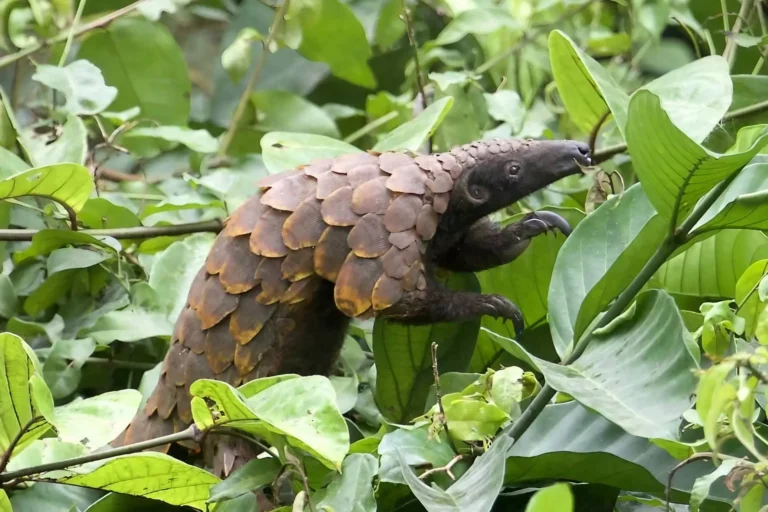
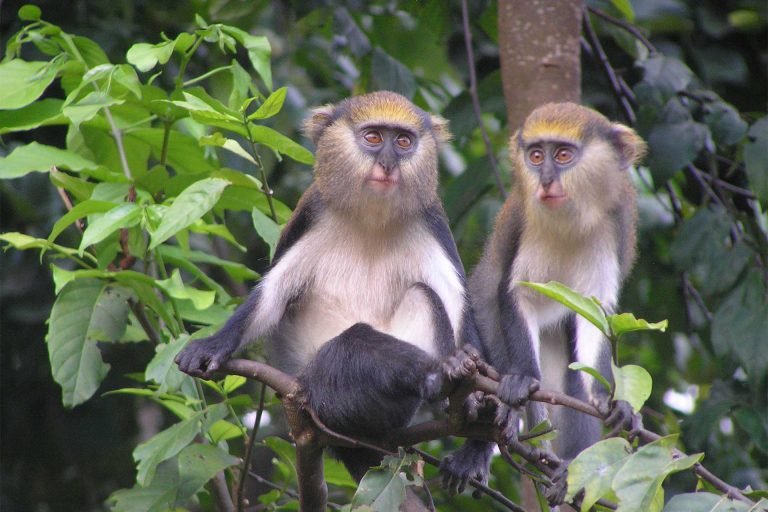
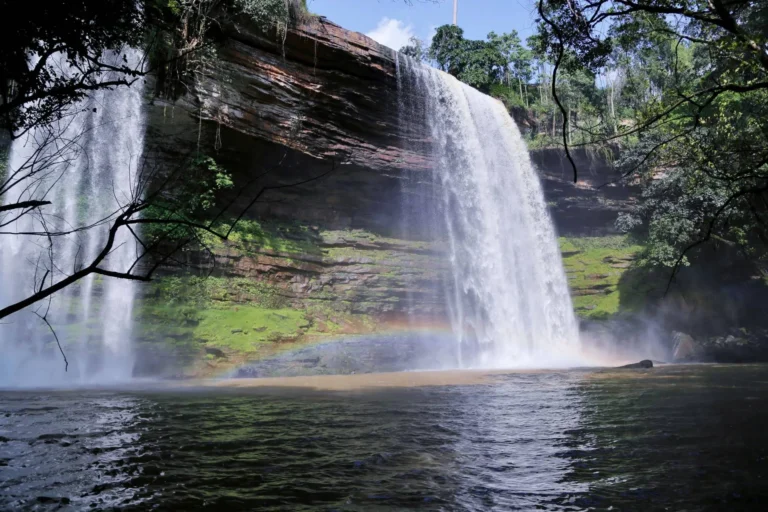
DESTINATION
ACTIVITY
DURATION
15 Days
GRADE
Easy
GROUP SIZE
Can be tailored to any group size
Highlights
- Explore Accra’s Black Star Gate, Jamestown forts and Artist Alliance Gallery
- Hike Shai Hills Reserve and cruise the Volta River at sunset
- Climb Mount Afadja and cool off beneath Wli Falls
- Track elephants on foot and by spotlight drive in Mole National Park
- Learn shea‑butter making and canoe the river in Mognori
- Swim under Kintampo Waterfalls and meet sacred monkeys at Boebeng‑Fiema
- Weave Kente cloth and stamp Adinkra symbols in Adanwomasie and Ntunso
- Visit Manhyia Palace, enjoy a village‑cooked lunch and local school in Kumasi
- Reflect at Cape Coast Castle’s “Door of No Return” and Assin Manso
- Cycle to Brenu Beach, kayak the lagoon and unwind by a bonfire
Why Book With Ashanti
Ethical, Sustainable Tours
Ashanti African Tours leads in responsible tourism, offering low-impact trips that protect nature and benefit local communities
Charitable Community Projects
Ashanti builds schools, sponsors youth teams, and funds conservation initiatives benefiting local communities in the regions they tour
Local Empowerment
Ashanti supports local businesses and uses locally-owned hotels and services, ensuring tourism benefits go directly to the communities you visit
Expert Local Guides
Ashanti employs 20+ multilingual expert guides from West Africa, offering authentic insights and personal connections at every destination
Proven Experience
Established in 2005, Ashanti African Tours brings two decades of expertise in delivering exceptional West African travel experiences
Award-Winning Reputation
Ashanti is a multi-award-winning operator (including Ghana’s Best Tour Operator 2024) with excellent traveler reviews
Tour Summary
Over 15 days and 14 nights, this tour delivers a comprehensive introduction to Ghana’s vibrant culture, complex history, and remarkable wildlife, all while championing responsible travel. You’ll be guided by award‑winning local experts who open doors to authentic experiences, whether that’s learning bead‑making traditions from the Krobo people, witnessing eco‑tourism in Mognori that funds conservation and community schools, or supporting the Baobab Children’s Foundation’s vocational programs, all designed to leave positive footprints in every community you visit.
Your journey begins in Accra, exploring landmarks like Black Star Gate, Independence Square, Jamestown forts and the Artist Alliance Gallery, then heads east to Shai Hills Reserve’s savannah hills and a sunset cruise on the Volta River. You’ll summit Mount Afadja and cool off under Wli Falls in the Agumatsa Sanctuary, before taking an internal flight to Mole National Park for elephant‑tracking safaris and a spotlight drive, capped by an eco‑village tour in Mognori. Mid‑tour, immerse yourself in Ashanti heritage through Kente weaving in Adanwomasie and exploring Kejetia Market in Kumasi. In the Central Region, walk through Cape Coast Castle’s “Door of No Return” and engage with the Baobab Children’s Foundation for a profound historical perspective. Finally, unwind with coastal adventures, cycling to Brenu Beach, kayaking the lagoon, and reflecting at Elmina’s St. George’s Castle, before returning to Accra for departure .
Our Price Promise
If you receive cheaper quotes from other legitimate companies, we will try to match or improve the price for the exact same tour package offered.
More Information
Day to Day Itinerary
-
Upon arriving at Kotoka International Airport in Accra, West Africa, your adventure begins. An expert local tour guide from Ashanti African Tours will be waiting for you at the airport. Look for their sign after passing through customs. Your guides will be your companions throughout your stay in Ghana, ensuring your well-being. You’ll be transported in their vehicle to your accommodation in Accra, where you’ll check in. Your experienced guide will then give you a warm Akwaaba (welcome) and provide you with an overview of your upcoming journey. You can enjoy your evening meal at the hotel restaurant as you start to get acquainted with the beauty of West Africa.
-
After breakfast, your guide and driver will meet you in the reception area to begin your exploration of Accra, Ghana’s vibrant capital. You’ll start by passing by notable landmarks such as Black Star Gate and Independence Square, where the independence monument and the enclosed flame of African liberation can be found, lit by Kwame Nkrumah in 1961. Next, you’ll visit the National Museum, which features ethnographic displays representing various West African countries and cultures. The adjacent garden hosts sculptures that showcase West African traditions and history, and you’ll have the opportunity to purchase traditional fabrics and crafts.
Your tour continues with a visit to Jamestown, an old community with historical structures predating the colonial era. The locals have worked diligently to preserve these buildings, providing insight into colonial-era living. Highlights include a 30-meter-high lighthouse constructed by the British in 1871 and colorful fishing boats on the beach.
You’ll then explore Fort James, originally a British trading post in 1673, which later merged with Dutch Fort Crêvecœur and Danish Fort Christiansborg. This area illustrates the distinction between British and Dutch Accra, featuring Brazilian stone houses built by formerly enslaved Africans who returned from Brazil. Jamestown is also known for producing world champion boxers, and you’ll visit one of the boxing gyms to witness their skills in action.
Lunch will be served at Buka, a local restaurant offering a selection of West African dishes. In the afternoon, you’ll visit the National Cultural Center, Ghana’s largest outdoor arts and crafts market, where locals sell traditional crafts from West Africa. At the Artist Alliance Gallery on the beachfront, you can immerse yourself in traditional and contemporary art and artifacts, including paintings, carvings, furniture, jewelry, fabrics, and photography, all available for purchase.
Your next stop is “Fantasy Coffins” of La, where Ghanaians celebrate life and honor the deceased with unique coffin designs representing the person’s occupation or interests. These designs range from cars and cocoa pods to crocodiles and boats.
After this eventful day, you’ll return to your hotel. In the evening, you can choose to relax at your hotel or venture into town for dinner and a taste of the local nightlife, complete with a live highlife band.
-
After breakfast, you’ll leave the bustling city of Accra and embark on a journey to Ghana’s Volta region. Your first stop will be the Shai Hills Reserve, a vast area of Savannah grassland and woodland characterized by imposing rock formations. This protected area is home to a variety of wildlife, including olive baboons, antelopes, green and spot-nosed monkeys. The region was once inhabited by the Shai people until their displacement by the British in 1892. The landscape is dominated by granite inselbergs, some of which house active traditional shrines. You’ll be joined by a wildlife guide as you hike to the Obonu Tem caves, where you’ll have the opportunity to spot wildlife, including a large colony of Egyptian Tomb Bats and colorful birds such as Turacos, Rollers, and Bee-eaters. Rock climbing amid these beautiful boulders will offer both exercise and a chance to appreciate the area’s natural beauty.
Next, you’ll visit the local village of Krobo, known for its traditional bead jewelry production. The Krobo people have a long history of bead-making, and you’ll have the unique opportunity to witness the ancient process of bead production. You’ll spend a few hours at one of the family compounds, where they will guide you through the skilled process of making beads and assist you as you create your own designs. In Ghana, beads are culturally significant symbols of wealth and beauty, worn by most Ghanaian women in daily life and during traditional durbars and festivals.
After this enriching experience and mingling with the locals, you’ll continue your journey to the Volta region, making a stop at your hotel in Akosombo for lunch. The hotel is perfectly situated on the banks of the Volta River, offering a breathtaking view of the surrounding landscape. Following lunch and a brief rest, you’ll embark on a cruise along the Volta River, enjoying the picturesque rolling hills and lush forests on either side. As you return, the setting sun will provide a stunning backdrop, concluding your day perfectly.
In the evening, you’ll have a relaxed dinner overlooking the river, savoring good food and soaking in the serene atmosphere of this part of Ghana.
-
The day begins early with a hike to Mount Afajato, Ghana’s highest peak, standing at around 885 meters in elevation. Expert guides will lead the way, offering insights into the region’s rich biodiversity, including butterflies, birds, and flora. The hike provides stunning views and ample opportunities for photography.
In the afternoon, you’ll visit the village of Tafi Atome, where the community has been protecting a population of endangered True Mona monkeys for over two centuries. These monkeys are considered sacred messengers from the gods, and you’ll learn about their history and protection efforts from local traditionalists. You’ll explore the surrounding forests to observe these beautiful primates and discover the medicinal plants used by locals for traditional herbal remedies. The local ethnic group in this area is the Ewe.
Lunch will be enjoyed at a local restaurant before heading to Wli, where you’ll visit the Wli (Agumatsa) Falls, believed to be the highest waterfall in West Africa. Located within the Agumatsa wildlife sanctuary in the Volta region of Ghana, the falls are set in a picturesque environment surrounded by diverse flora and fauna. You’ll trek through the thick semi-deciduous forest, reaching the falls from Wli village. The sound of the enormous colony of Straw-coloured Fruit Bats on the adjacent cliffs mingles with the powerful flow of the river. You can relax and even take a dip in the pool beneath the waterfall before returning to your hotel in the early evening.
-
The day begins early as you head to Kotoka International Airport in Accra with the goal of catching a morning flight to maximize wildlife viewing time. Upon arriving in Tamale, you’ll be met by your vehicle and driver. Lunch will be served at one of the hotels in the city before you embark on your journey towards Mole National Park.
Mole National Park is Ghana’s largest national park, covering an expansive 4,847 square kilometers of diverse habitat. The park is home to nearly 100 mammal species and over 330 species of birds. Your accommodation is perched on a 250-meter-high escarpment, offering breathtaking views of this vast park. It’s a remarkable experience to relax by the pool on the hotel terrace, watching African savannah elephants bathing in the nearby watering holes inhabited by crocodiles.
After your evening meal, you’ll set off for an adventure in the park, involving both driving and walking. This nighttime excursion includes spotlighting to spot and observe the diverse mammals that inhabit this unique habitat.
-
The day begins with an exciting start as you embark on an early morning adventure led by an armed guide, tracking African Elephants on foot. The entire morning is dedicated to tracking and getting as close as possible to these magnificent creatures. Along the way, you’ll likely encounter various other animals as you explore the watering holes with your armed guide. Many travelers who have explored Africa extensively are amazed at the proximity they can achieve to African Elephants, the world’s largest land mammals, on foot.
Mole National Park boasts an impressive array of wildlife, with over 93 recorded mammal species. As you traverse the savannah and bush, you may spot troops of olive baboons and patas monkeys, getting up close to these beautiful primates. Animals like kob, bushbuck, and waterbuck often visit the watering holes to drink, while crocodiles lurk in the muddy waters. Deeper within the park, you might encounter hartebeest, roan antelope, leopard, hyena, and African buffalo.
In addition to the rich mammal diversity, the park is home to an impressive 350 species of birds, which your experienced guides will help identify. After a thrilling morning of wildlife tracking, you’ll enjoy lunch by the pool at your accommodation, where you can also cool off with a swim or simply relax.
In the afternoon, your adventure continues with a visit to the nearby village of Mognori, located on the park’s boundary, about a 30-minute drive from your accommodation. Here, you’ll meet a local who will guide you on a walking tour of the community. The villagers used to reside within what is now protected as Mole National Park, and they’ve established an eco-tourism project to benefit from tourism coming to Mole. This initiative helps conserve wildlife within the park and discourages locals from poaching, as they directly benefit from nature tourism.
During your exploration of the community, you’ll witness the production of shea butter and discover the many uses of the shea nut, crucial to the area. You’ll also visit tobacco fields, meet the local chief and his family, and engage in meaningful conversations with the traditional healer, who will share insights into how local traditional medicine treats illness using various trees and plants. The community is dotted with active local shrines, and you’ll learn about their significance within the community.
The day concludes with a river safari in a traditional dugout canoe on the Mole River. Your local guide will help spot birds and wildlife during this serene adventure. Finally, you’ll return to your accommodation for the evening meal, allowing you to unwind beneath the clear West African night sky, marking the end of another memorable day in Ghana.
-
After an early breakfast, you’ll begin your journey southward from Northern Ghana to Kumasi. While it’s primarily a travel day, there are some remarkable stops along the way.
Your first stop, just before lunch, will be at the picturesque Kintampo Waterfalls, a fast-flowing waterfall with a small pool at the bottom, perfect for swimming. Some adventurous guests may even take the opportunity to experience Ghana’s most powerful “Power Shower,” providing a refreshing break during the journey. Additionally, there’s a high rope bridge across the falls, offering an exciting excursion with breathtaking views of the falls. You’ll have lunch at the nearby Falls restaurant before continuing your journey, passing through Techiman on your way to Boebeng-Fiema Monkey Sanctuary.
These two closely-knit villages have dedicated themselves to protecting the Black and White Colobus and Lowes Mona monkeys found in the surrounding forests. The locals consider these monkeys sacred and provide them with traditional burials. During your time in the villages, you’ll interact with the locals, gaining insights into the history of primate protection, as well as their culture and daily lives as farmers. As you venture into the forest trails to observe these beautiful monkeys, your local guide will identify the numerous medicinal trees and plants in the area and explain how they benefit the community. It’s important to note that this is not a zoo; it’s a forest habitat area protected by locals due to centuries-old traditional beliefs that these primates are sacred. The monkeys are wild and free to roam wherever they please, even leaving the communities if they wish. After a delightful time with the friendly locals, your journey continues, and you’ll arrive in Kumasi in the early evening.
-
Today’s journey in Kumasi blends the old and the new, offering a fascinating mix of history and contemporary city life. Your exploration of Ashanti history begins with visits to traditional villages, Adanwomasie and Ntonso.
In Adanwomasie, known as the birthplace of Ghana’s rich and colorful Kente cloth, you’ll encounter some of Ghana’s finest Kente weavers. These skilled artisans have been weaving Kente cloth for generations, and their work plays a significant role in the history of this exquisite fabric. You’ll have the opportunity to interact with the locals, learn about the historical significance of various Kente designs, and witness traditional weaving methods that have remained unchanged for centuries. Notably, you’ll discover that former US President Bill Clinton has a Kente design named after him, known as the “Clinton Kente,” in recognition of his respect for Ghana during his state visit.
Next, you’ll venture to the ancient village of Ntonso, where Adinkra cloth and symbols originated. These symbols carry specific meanings and are carved from calabash shells. The Adinkra symbols are then printed onto traditional cloth using natural dyes derived from the bark of local trees. Adinkra cloth has been a part of Ashanti culture for over four centuries, even predating Kente cloth. Today, many Ashanti people wear Adinkra cloth for important occasions like funerals and festivals. During your time in Ntonso, you’ll delve into the meanings behind these symbols and even have the opportunity to create your own strip of Adinkra cloth with symbols of personal significance.
Historically, women from the Ashanti region are renowned for their hard work and entrepreneurial spirit, with many owning significant businesses in Kumasi. For lunch, you’ll visit a successful local restaurant called Jofel, which has grown over the past two decades and now has several branches across the country, offering a wide variety of local and international dishes.
After lunch, you’ll explore Adum, the commercial heart of Kumasi and the primary shopping area for Ghanaians. In the afternoon, you’ll venture down to Kejetia market, reported to be the largest outdoor market in West Africa. This visit provides a fantastic opportunity to immerse yourself in the daily life of the city’s residents and perhaps find some bargains. The market is a bustling labyrinth of closely nestled stalls, with some vendors even sleeping there in the evenings due to the continuous trade. Spending quality time here will give you a genuine feel for the lives of many locals living in Kumasi.
In the evening, you’ll have the option to rest at your accommodation or venture into town to experience Kumasi’s local nightlife and music scene.
-
The day starts with a visit to the Manhyia Palace, the residence of the Asantehene King of the Ashanti people, offering a deep dive into Ashanti history and culture. The tour provides valuable insights into the Ashanti legacy.
Afterward, the journey heads south to remote villages, Bonkro and Breku, where lunch is prepared by a local chef. Most locals in Ghana live in such remote communities, engaged in subsistence farming or larger-scale agriculture like cocoa, palm oil, citrus, or rubber.
Our company has a strong connection with these communities, collaborating to protect the surrounding rainforest and endangered wildlife. They’ve also built a school for almost 300 children who previously lacked access to education due to long walks. This delayed their education significantly.
The initiative aims to link the communities to environmental conservation through ethical tourism. In return for locals stopping tree cutting and hunting, the tour operator has provided a school, accommodation for tourists, and a restaurant. All generated funds go into a community fund, decided upon annually by the communities. The project has successfully halted illegal tree felling for over five years.
Following the school visit, the tour continues to the Kuapa Kokoo Cooperative, a Fair-Trade organization supporting cocoa farmers, including women. They own a significant share of Divine chocolate, a rapidly growing brand. Visitors get to meet cocoa farmers and learn about efforts to improve working conditions and eliminate child labor.
A visit to a local cocoa farm reveals the harvesting process, with children using unripe cocoa as local sweets. Locals also utilize cocoa pods to make soap. The day concludes with an evening spent with the community, offering a glimpse into village life in this remote part of Ghana.
-
The day starts leisurely in a village, where guests wake up to the sounds of daily life. During breakfast, they decide which local dishes they want to learn to cook for dinner, considering their week-long stay in Ghana and individual favorites. To work up an appetite and explore the area, there’s an option to ride mountain bikes to the main market town, enjoying scenic dirt roads through villages.
Upon reaching the town, the group heads to the local markets to purchase ingredients for dinner. This immersive experience allows them to engage in daily life, haggle for produce, and then return to their village to prepare a local meal. Lunch is enjoyed at a local chop bar while shopping for ingredients, with cooks providing a list and money for the market, encouraging guests to bargain for good prices.
After a relaxed afternoon, guests return to the village by bike to prepare the meal. The cooks offer advice on various dishes, and there are local cooking books available. Before dinner, an important conservation activity takes place as the group walks to the nearby rainforest, aiming to expand its area and offset their holiday’s carbon footprint by planting native trees along the forest’s boundary. The evening meal is enjoyed around an open bonfire, accompanied by local stories, music, and community interaction.
-
After breakfast in the village, the journey continues southward to Elmina in the central region of Ghana. The town’s name, Elmina, was given by the Portuguese due to the abundance of gold found in Ghana, reflecting the historical significance of gold in the region.
Ghana is known for its high-quality gold and ranks as the 8th largest exporter globally and the second largest exporter in Africa after South Africa. The tour stops at Assin Manso, a significant town along the enslaved African trade routes. The town surrounds the Ndonkor Nsuo, also known as the Enslaved African River, where enslaved Africans were checked for fitness and bathed before being transported to Cape Coast for shipment to the Americas. These slaves had endured arduous journeys from Northern Ghana, walking in shackles and chains through thick forests, often in poor health.
In 1998, a symbolic gesture was made when the remains of two previously enslaved Africans, Samuel Carson from New York, USA, and Crystal from Kingston, Jamaica, were returned to Cape Coast Castle. They were symbolically passed through the “Door of No Return” before being reburied at Assin Manso. The tour then proceeds to Cape Coast using the same route that the slaves were forced to travel not so long ago.
Cape Coast Castle, a UNESCO World Heritage site, serves as a powerful monument to the harrowing history of the transatlantic slave trade. Visitors embark on an emotional journey, exploring the castle’s dungeons and the infamous “Door of No Return.” Inside, a historical museum explains the castle’s history, the history of Cape Coast, and offers literature on Ghana’s forts, castles, and cultural traditions.
The tour also highlights the impoverished fishing communities surrounding the castle, where many children face hardships, including homelessness and limited access to education. Lunch is served at the Baobab Children Foundation, an organization providing hope and education to disadvantaged children. The foundation operates a vocational school, teaching subjects like carpentry, dressmaking, tailoring, and more to prepare children for self-sufficiency.
The afternoon features a traditional batik making workshop with Global Mamas, an organization empowering local women through artistic skills and fair-trade practices. Visitors engage with local artisans, learning the traditional techniques of batik making and creating their own designs. The finished pieces are then tailored into shirts or dresses, serving as meaningful souvenirs of their time in Ghana.
After a day filled with diverse experiences, from tropical forests to coastal communities, the group heads to their accommodation to relax for the evening.
-
The day begins early with a trip to Kakum National Park, known for its stunning rainforest canopy walkway. After breakfast, visitors embark on this adventure, walking on suspended bridges attached to emerging trees 40 meters above the rainforest floor. The canopy walkway, with its seven bridges, offers breathtaking views of the lush rainforest, making it a memorable experience.
Kakum National Park plays a crucial role in preserving the original habitat of the region, which was once home to locals and a significant source of food. At the park headquarters, there is an informative information center detailing the park’s rich flora and fauna. The park houses over 40 mammal species, including forest elephants, leopards, and six primate species.
Near Kakum, on the forest’s border, visitors can explore the International Stingless Bee Project. Ghana is home to approximately nine species of stingless bees, which are essential to the ecosystem. The tour educates visitors about the local importance of bees, their medicinal properties, and offers the chance to see their hives and taste and purchase stingless bee honey. There is also a stingless bee walkway and butterfly garden where forest butterfly species can be observed.
Lunch is served at a unique restaurant in Hans Cottage, situated above a lake where Nile Crocodiles can be spotted beneath. Afterward, guests return to their hotel to relax by the pool for a few hours.
In the evening, an exciting cultural experience awaits with local music and drumming lessons. Drumming is deeply rooted in Ghanaian culture and history, used for celebrations, communication between communities, and entertainment. A local drumming and dance teacher leads a lesson and performance with the traditional Djembe drum. After this engaging evening, visitors have the option to explore the local nightlife and enjoy their evening meal in town.
-
In the morning, after a leisurely breakfast and checking out of the hotel, the group heads to a nearby fishing town situated on one of Ghana’s finest beaches. After loading their vehicle, they transfer to a quieter coastal road where bicycles await for a scenic 10-kilometer ride along coastal savannah roads to reach the beach. The journey is tranquil and offers beautiful views of the habitat.
Upon reaching the beach, they check into their accommodation and enjoy lunch. This beach is typically less crowded with tourists, providing a serene and sometimes almost private atmosphere. After some quality relaxation time, around 4:30 pm when the sun is less intense, they head to a local lagoon for an exciting activity.
The coastal lagoon offers a stunning view of the ocean, and local fishermen from the nearby village use wooden canoes to catch tilapia, crabs, and other fish. The group spends the next few hours kayaking on the lagoon, exploring its various corners, enjoying the birdlife, landscape, and observing the fishermen bringing in their daily catch.
By this time, they’ve surely worked up an appetite for their evening meal. They dine in a perfect location overlooking the beautiful Gold Coast of West Africa as the sun sets over the ocean. The evening concludes with a beach bonfire, immersing the group in the atmosphere of the quiet fishing community.
-
After a couple of weeks of exciting exploration and immersion in Ghana, a day of relaxation is in order at this picturesque beach location. Guests can opt to unwind and soak in the serene atmosphere or partake in beach games like football or beach volleyball with the friendly locals. For those with lingering energy, there’s the option to explore nearby communities by strolling along coastal paths or taking bikes for a ride further afield. Additionally, if requested, kayaking on the lagoon is also an option for those who want to continue their active pursuits.
-
On the final day of your Ghanaian adventure, you’ll spend the morning relaxing at your beachfront accommodation. Your guide and driver will collect your bags and load them into the vehicle as you prepare to head back to Accra.
On your way to Accra, you’ll pass through the fishing town of Elmina, where you’ll visit the Castle of St. George, a UNESCO World Heritage site and the oldest surviving colonial building in sub-Saharan Africa, dating back to 1482. This castle holds a significant place in history, particularly during the tragic era of the transatlantic slave trade. Inside the castle, there’s an informative museum focusing on local history.
After the castle tour, you’ll have the opportunity to explore the local fishing market and visit the traditional boat builders in the community. Elmina has preserved its historical charm, with most fishing boats being traditional wooden ones, and the methods of boat construction have remained unchanged for centuries.
Your journey continues, and upon returning to Ghana’s capital, Accra, you’ll enjoy an early evening meal at a local restaurant. This provides a perfect moment to bid farewell and reflect on the wonderful experiences of your West African adventure. Subsequently, you’ll be transferred to the airport for your departure.
Arrival:
Departure:
Dates
Prices
Our tour prices vary depending on accommodation type and group size. Please contact us to discuss your tour requirements preferences.
Our Price Promise
If you receive cheaper quotes from other legitimate companies, we will try to match or improve the price for the exact same tour package offered.
Included
- Accommodation
This will be pre-determined prior to your booking and will depend on your budget. We offer the choice from High-end, to mid-range and budget options. - Food
All our standard tour prices include breakfast, lunch, and dinner, in addition we have fruit and snacks when available on all our vehicles. - Mineral water
Unlimited mineral water is available to every participant for the duration of your time with us on all our tours. - Transportation
In a fully air-conditioned vehicle for the duration of your tour, vehicle type will depend on the group size and all our vehicles are comprehensively insured and in excellent condition. - Driver
All our drivers are highly experienced and employed on a full-time basis by our company, their focus is on your safety and comfort. On the occasions we may need to rent vehicles and drivers from outside our company, these are well known to us and are of the highest quality with your safety and comfort as their priority. - Fuel
Unlimited daily milage and all fuel is included in the tour price. - Entrance fees
All entrance and excursion fees detailed in your itinerary are included in the tour price. - Guide fees
All expert guide fees are included in the price for all our tours. - Additional services
Our company offer 24/7 professional, care, attention, and office support to all our tour participants.
Not Included
- International flights
- Visas
- Travel insurance
- Soft and alcoholic drinks
Frequently Asked Questions
Do I need a visa to travel?
Most countries in West Africa require visas for entry and this will ultimately depend on your country of origin and your chosen destination. Once you have decided on your preferred holiday destination, go to the destination page for that country on our website and you will find all the entry requirements and visa information for that specific country in the Travel Tips section at the bottom of the page. Ashanti African Tours offer tours to Ghana, Togo, Benin, Liberia, Sierra Leone, Senegal, Sao Tome and Principe and Ethiopia. If you do not see the visa information on the relevant pages, we are here to help, so please contact us
Do I need vaccinations/shots to travel?
All countries we travel to in West Africa require Yellow Fever vaccination and you must ensure you keep the certificate with your passport when entering the country as this may be requested for inspection. For up to date information on all other vaccinations you may need please consult your doctor, travel clinic or public health department six to eight weeks prior to departure for extensive up to date information on foreign travel to West Africa.
Do I need to bring medicine with me?
If you are on any medication for your personal wellbeing, then please ensure you keep this in your hand luggage prior to travel in case your main luggage is delayed. Malaria is prevalent in West Africa and you will need to take preventative malaria treatment and there are several prophylactics available so please consult your doctor or travel clinic to see which one is best for you. Imodium or similar medication is always advisable to have with you when travelling in case you experience traveller Tummy which is common when travelling to places with a different climate. Pharmacies are common in most locations here in West Africa and your guide is always available to assist you if you need to visit a pharmacy, please be open and discuss any issues you have with your guide.
Do I need travel insurance?
You must ensure that you have adequate personal insurance cover for your trip. It is a compulsory requirement for all our trips in Senegal and other African destinations and it is your responsibility to take out a suitable policy. You will not officially join our tours until evidence of your insurance has been provided to our office. This must include personal accident, medical expenses, and repatriation to your country of origin. We also strongly recommend that your policy covers cancellation (especially significant since the Covid-19 pandemic), curtailment and loss of luggage and personal effects. Please note that free insurance cover offered by some credit cards does not cover repatriation expenses.
Who will meet me at the airport?
Prior to your arrival our office will provide you with a photo of your guide and driver in addition to their personal mobile/cell phone number in case you can not locate them at the airport. The guide and driver assigned to your tour will also be holding an Ashanti African Tours sign or a sign with your name on it at the arrival hall when leaving the main building after clearing customs and immigration. Please ensure you check your guide or drivers company identification card when meeting them prior to joining our vehicle. Airports can be busy and some people can be disorientated when arriving in an unusual country so in the rare instance you cannot locate your driver or guide please wait at the arrival hall and call their phone number which our office provided you. In the unlikely event you can still not reach them then call our office 24/7 emergency number and we will ensure they locate where you are in the airport.
How much spending money will I need?
The amount of spending money you will need is determined by the type of tour you have booked with us. Most of our standard scheduled and customized tours are all-inclusive, so you only need to budget for the following: snacks, soft (not mineral water as this is always included) and alcoholic drinks and items of a personal nature. If you have booked a budget tour, then some aspects of the tour may not be included in the tour price and you will receive this information during your enquiry process.
Can I access ATM’s to withdraw money?
Access to Automated Teller Machines varies greatly depending on the country, city, or town you are in and it is common for machines to have technical problems disbursing money. It is advisable to withdraw your spending money in the capital city of your chosen destination on your arrival, alternatively your guide can arrange for money to be changed at local Forex Bureaus and banks during your trip.
Will my driver or tour guide stay with me at all times?
Our drivers and guides are always available 24/7 during your time touring with us. For our student trips they will always remain with the group, staying at the same accommodations and are always on hand in case of an emergency. On our standard tours the guide and driver are with you for as long as you need them, sometimes they stay at the same accommodations, when this is not possible they stay at a nearby accommodation but are always available if needed. You will be provided with your guide and drivers personal contact number and our clients are always given a 24/7 emergency contact number.
How much should I tip?
All our company drivers, assistants and expert local guides are employed on full time contracts with Ashanti African Tours and receive a good salary and in addition a daily bonus when on tour. Ashanti African Tours also have a company policy to tip all local site guides and hotel staff. Therefore, if any of our clients would like to tip any of our guides, site guides, drivers, or staff at hotels we use, it is at the client’s own discretion.
Can I bring donations?
It is common for our tour participants to want to bring donations for schools, hospitals, library’s, and other organisations that are in need here in West Africa. This is very much appreciated; however, we do not encourage giving out pens, books and other items directly as these are often taken off their intended recipient by bigger or older people and also breeds a begging culture in locations we visit. To ensure the donations go to their intended recipients our office will identify schools, communities and organisations in need and we will arrange for you to hand them over to a representative or person in charge. This ensures the item and donation goes to those in most need of help. Ashanti African Tours have also registered our own NGO charity “Rainforest Rescue Ghana” which builds schools, helps local communities, youth and protects rainforest and endangered wildlife in Ghana. To date (2020) we have donated over $135,000.00 USD from our company profits to our projects, if you would like more information on our projects please contact us
Will my mobile/cell phone work?
If you would like to use your phone and number registered to your home country when in West Africa it is important you inform your service provider and arrange international roaming, you will then be able to connect to local networks, however please be aware this can be expensive way to use data and make calls. It is possible for our office and your guide to arrange a local sim for your phone for you to use during your time here, for this to work please ensure your phone is not locked to a network in your own country. The local sim would need to be registered but would be a cheaper way for you to call and use the internet.
What should I pack and bring on my trip?
Due to the wide variety of tours we offer, this information will be forwarded upon confirmation of your booking in your pre-trip information pack.
Reviews
Worth every penny
This was the best trip we’ve had as a family. Ashanti designed a custom itinerary for us which kept our 8 year old son entertained, gave us a tour of the country and it’s food, heritage and people and gave us a robust education from past to present. Our driver and guide were the best we’ve ever had – many other tourists and staff at the heritage sites knew them by name and were always happy to see them and sing their praises. We didn’t have to lift a finger to have the PERFECT experience and the cost was well worth it. We will be traveling w Ashanti again soon. I can’t recommend this company enough.
A wonderful nature trip
Excellent hardly covers it. From the moment I made an enquiry to the end of the trip Ashanti African tours were exemplary.
The office support was very reassuring and helpful. Then, from the moment I was met at the airport in Accra to the moment I was dropped back there I was looked after perfectly. Both guides were excellent – and it is wonderful to have your guide jump with personal joy at some of the sightings.
I had specifically requested a pangolin, after 30 years and many safaris in other places. We saw two. With an attitude of can do – and will go on trying.
It was a massive bonus that Andrew knows butterflies as well as he does. Even when the birds were being shy, the butterflies entertained us. Unbelievable.
Both guides were solicitous – and at Ankasa Richard, the driver there, went out of his way to help me get in and out of the rather high vehicle – thank you Richard.
Both Andrew and Jackson were also informative about customs, traditions and family life which was very interesting.
Oh. And if you are going solo: yup, that was OK.
If you are looking for somewhere to go: try Ghana.
Culture and Wildlife Tour
Great tour. Excellent driver and guide and great admin support. The team were great at accommodating any requests we had. Great way to see the best of Ghana.
For more information on this tour
Share this trip
Award Winning Tours Across West Africa
Ethically arranged, locally guided, authentic tours that benefit locals and the environment
EXCELLENT





